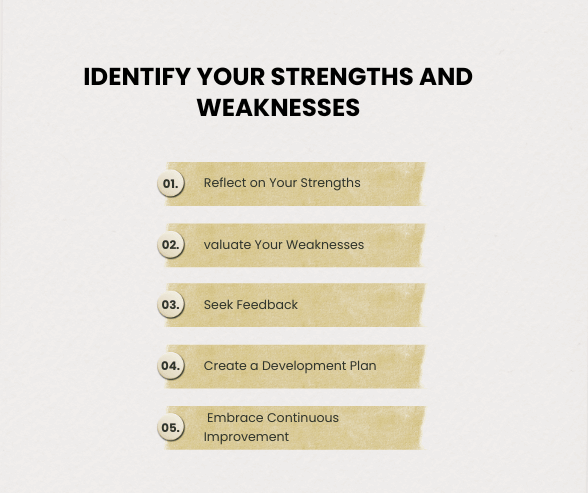Self-confidence is a crucial factor in career success. It’s the belief in your abilities, the assurance in your decisions, and the courage to take on challenges head-on. Building self-confidence isn’t about arrogance or pretending to be someone you’re not it’s about recognizing your strengths and using them to grow. In this blog, we’ll walk you through actionable steps to help you build self-confidence for career growth.
Understand the Importance of Self-Confidence
Self-confidence is the cornerstone of career success. It shapes how you perceive yourself and how others perceive you, influencing your ability to communicate effectively, make decisions, and take on new challenges. When you have confidence in your abilities, you’re more likely to step out of your comfort zone, take calculated risks, and pursue opportunities that align with your career goals.
In the workplace, self-confidence impacts every aspect of your professional life. It enables you to present your ideas assertively, seek out leadership roles, and navigate difficult situations with poise. Without self-confidence, even the most skilled professionals may hesitate to showcase their talents, leading to missed opportunities and stagnation.
Moreover, self-confidence is contagious. Colleagues and leaders are more likely to trust and support those who demonstrate confidence in their work. This trust can lead to increased responsibility, career advancement, and a stronger professional network. In essence, self-confidence not only empowers you to achieve your goals but also fosters an environment where others recognize and reward your contributions.
Identify Your Strengths and Weaknesses

Recognizing your strengths and weaknesses is a crucial step in building self-confidence for career growth. Understanding what you do well allows you to leverage your skills more effectively, while acknowledging areas where you need improvement gives you a clear path for personal and professional development.
1. Reflect on Your Strengths:
Start by taking a close look at your strengths. What are the tasks or activities where you consistently excel? Do you have a talent for problem-solving, communication, leadership, or creativity? Reflect on the positive feedback you’ve received from colleagues, supervisors, or clients. These are often indicators of your strengths. When you know your strengths, you can focus on honing them and using them to your advantage in the workplace.
2. Evaluate Your Weaknesses:
Identifying weaknesses can be more challenging but equally important. Instead of viewing weaknesses as flaws, see them as opportunities for growth. Are there areas where you struggle or feel less confident? Perhaps you find it difficult to delegate tasks, or you feel uncomfortable speaking in public. Recognizing these areas allows you to create a targeted plan for improvement, whether through training, practice, or seeking support from others.
3. Seek Feedback:
Sometimes, it’s difficult to objectively assess your strengths and weaknesses. Seeking feedback from trusted colleagues, mentors, or supervisors can provide valuable insights. They might identify strengths you’ve overlooked or offer constructive criticism on areas where you can improve. This external perspective can help you gain a more balanced understanding of yourself.
4. Create a Development Plan:
Once you’ve identified your strengths and weaknesses, create a plan to build on your strengths and address your weaknesses. For example, if public speaking is a weakness, consider joining a speaking club or taking a course to improve your skills. If problem-solving is a strength, look for opportunities to lead projects where you can apply this talent.
5. Embrace Continuous Improvement:
Remember, identifying your strengths and weaknesses is an ongoing process. As you grow in your career, your strengths may evolve, and new challenges may reveal additional areas for improvement. Embrace this continuous cycle of self-assessment and development as a key part of building long-term self-confidence.
Set Realistic and Achievable Goals
Setting realistic and achievable goals is fundamental to building self-confidence and advancing in your career. Goals provide direction, motivation, and a sense of purpose. When you set goals that are within reach and aligned with your capabilities, you build a track record of success that reinforces your confidence. Here’s how to set goals that support your career growth:
1. Define Clear and Specific Goals:
The first step in goal-setting is to be specific about what you want to achieve. Instead of setting a vague goal like “I want to improve my skills,” specify what skills you want to develop and why. For example, “I want to enhance my project management skills by completing a certification course and leading a project within the next six months.” Clear goals help you understand exactly what you need to focus on and provide a concrete target to aim for.
2. Ensure Goals are Achievable:
While it’s important to set challenging goals, they should also be achievable given your current resources and abilities. Assess your goals to ensure they are realistic. For instance, if you’re new to a field, setting a goal to become an industry expert within a month might be unrealistic. Instead, aim for incremental milestones, such as gaining foundational knowledge or completing an introductory course. Achievable goals help you stay motivated and avoid frustration.
3. Break Goals into Manageable Steps:
Large goals can be overwhelming. Break them down into smaller, manageable steps or milestones. For example, if your goal is to advance to a managerial position, break it into steps such as improving leadership skills, taking on more responsibilities, and seeking mentorship. Each step should have its own timeline and actions. This approach makes your goals more attainable and helps you track your progress more effectively.
4. Set a Realistic Timeline:
A well-defined timeline is crucial for goal-setting. Establish a timeframe for each goal and its individual steps. This helps create a sense of urgency and accountability. However, ensure the timeline is realistic based on your current workload and commitments. Rushing through goals can lead to subpar outcomes, while overly extended timelines might reduce motivation. Find a balance that keeps you focused and on track.
5. Monitor Progress and Adjust as Needed:
Regularly review your progress toward your goals. This allows you to celebrate achievements, assess what’s working, and identify areas for improvement. If you encounter obstacles or realize that your goals need adjusting, don’t be afraid to revise them. Flexibility is key to staying on course while adapting to changing circumstances.
Develop New Skills
Continuous learning is a powerful way to build self-confidence. As the workplace evolves, so should your skill set. Identify skills that are valuable in your industry and invest time in developing them. Whether it’s learning new software, improving your leadership abilities, or mastering a foreign language, gaining new skills can make you feel more competent and confident in your career.
Online courses, workshops, and seminars are great resources for skill development. Additionally, seek feedback from peers or mentors on areas where you can improve. Constructive feedback can guide your learning journey and help you build confidence as you see tangible improvements in your abilities.
Practice Positive Self-Talk

The way you talk to yourself has a profound impact on your self-confidence. Negative self-talk, such as doubting your abilities or fearing failure, can undermine your confidence and prevent you from taking action. Conversely, positive self-talk can empower you to push through challenges and believe in your potential.
Start by becoming aware of your internal dialogue. When you catch yourself thinking negatively, reframe those thoughts into positive affirmations. For example, if you think, I’m not good enough for this role, change it to, I have the skills and experience to succeed in this role. Over time, this practice can help reshape your mindset and build a stronger sense of self-confidence.
Step Out of Your Comfort Zone
Growth and self-confidence are often found outside of your comfort zone. When you challenge yourself to try new things, you expand your capabilities and prove to yourself that you’re capable of more than you thought. Whether it’s taking on a new project at work, volunteering for a leadership role, or speaking up in meetings, stepping out of your comfort zone can build your confidence over time.
It’s important to start small. You don’t need to take on massive challenges right away. Begin with tasks that stretch your abilities slightly, and gradually increase the difficulty. Each time you complete a task outside of your comfort zone, your confidence will grow.
Learn from Failure
Failure is an inevitable part of any career, but how you respond to it can either diminish or build your confidence. Instead of viewing failure as a setback, see it as a learning opportunity. Analyze what went wrong, what you could have done differently, and how you can improve in the future. This approach helps you develop resilience and confidence in your ability to overcome obstacles.
Remember, even the most successful professionals have faced failure at some point. The difference is that they used those experiences to learn and grow. By adopting a similar mindset, you can turn failures into valuable lessons that contribute to your long-term career growth.
Surround Yourself with Positive Influences
The people you surround yourself with can significantly impact your confidence. Positive, supportive colleagues, mentors, and friends can encourage you, provide constructive feedback, and help you see your potential. On the other hand, negative or critical individuals can sap your confidence and make you doubt yourself.
Seek out relationships that uplift you and contribute to your growth. Find mentors who believe in your abilities and can guide you in your career journey. Additionally, consider joining professional groups or networks where you can connect with like-minded individuals who share your goals and aspirations.
Take Care of Your Physical and Mental Well-being
Your physical and mental well-being plays a crucial role in your self-confidence. When you feel healthy and energized, you’re more likely to approach challenges with a positive mindset. Conversely, poor physical health or unmanaged stress can negatively impact your confidence.
Prioritize regular exercise, a balanced diet, and sufficient sleep. These habits contribute to your overall well-being and help you maintain the energy and focus needed for career growth. Additionally, practice stress-management techniques such as meditation, deep breathing, or mindfulness to keep your mind clear and calm in challenging situations.
Celebrate Your Achievements
Taking time to acknowledge and celebrate your accomplishments is essential for building self-confidence. It’s easy to get caught up in the pursuit of the next goal without recognizing how far you’ve come. Celebrating your achievements, both big and small, reinforces your belief in your abilities and motivates you to continue pushing forward.
Keep a journal of your successes and milestones. Reflect on the progress you’ve made and the skills you’ve developed. This practice not only boosts your confidence but also provides a valuable record of your growth, which can be especially helpful during performance reviews or job interviews.
Conclusion
Building self-confidence for career growth is a journey, not a destination. It requires consistent effort, self-awareness, and a willingness to step out of your comfort zone. By following the steps outlined in this guide, you can gradually build the confidence needed to reach your career goals. Remember, confidence isn’t about being perfect it’s about believing in your ability to learn, grow, and succeed. Take the first step today, and watch your career thrive as your confidence grows.
